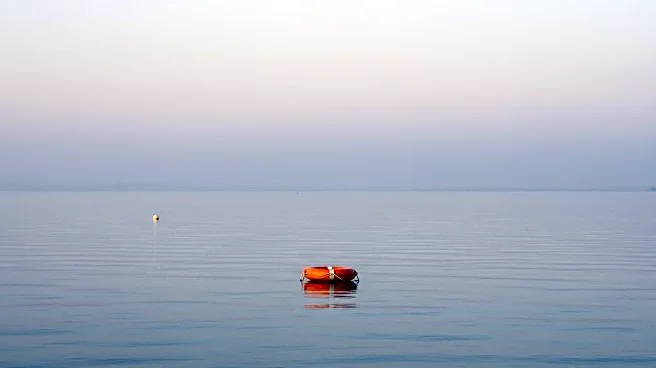What's Happening?
Three young sisters from Sudan, aged 9, 11, and 17, tragically lost their lives while attempting to cross the Mediterranean Sea to Italy. The incident occurred when an overcrowded rubber dinghy, carrying the sisters and other migrants, took on water in adverse weather conditions. The German nonprofit organization RESQSHIP reported the deaths after rescuing approximately 65 individuals from the unseaworthy vessel in international waters north of Libya. The sisters' mother and brother were among the survivors brought to the Italian island of Lampedusa. The boat had departed from Zuwara, Libya, and was found in distress by the Alarm Phone network, which alerts rescuers to migrant boats in trouble. The rescue operation was perilous due to darkness and rough seas, and the bodies of the sisters were discovered in a pool of water and fuel at the bottom of the boat.
Why It's Important?
This tragic event underscores the ongoing humanitarian crisis faced by migrants attempting to cross the Mediterranean Sea. The route has been perilous, with over 30,000 lives lost since 2014, according to the International Organization for Migration. The incident highlights the desperate conditions and risks that migrants endure in search of safety and better opportunities. It also raises concerns about the role of the Libyan coast guard, which has been accused of human rights violations. The broader implications include the need for international cooperation to address the root causes of migration and to ensure the safety and rights of those seeking refuge. The tragedy also calls attention to the urgent need for more effective and humane migration policies.
What's Next?
The international community may face increased pressure to address the humanitarian crisis in the Mediterranean and to reassess the role of the Libyan coast guard. There could be calls for more robust search and rescue operations and for policies that prioritize the safety and rights of migrants. Additionally, there may be discussions on providing more support to countries like Italy that are on the front lines of receiving migrants. Human rights organizations are likely to continue advocating for the protection of migrants and for accountability for any violations of international law.
Beyond the Headlines
The incident raises ethical questions about the treatment of migrants and the responsibilities of nations and international organizations in safeguarding human rights. It also highlights the long-term challenges of addressing migration flows driven by conflict, poverty, and climate change. The tragedy may prompt a reevaluation of current policies and practices, emphasizing the need for comprehensive solutions that address both immediate humanitarian needs and the underlying causes of migration.









